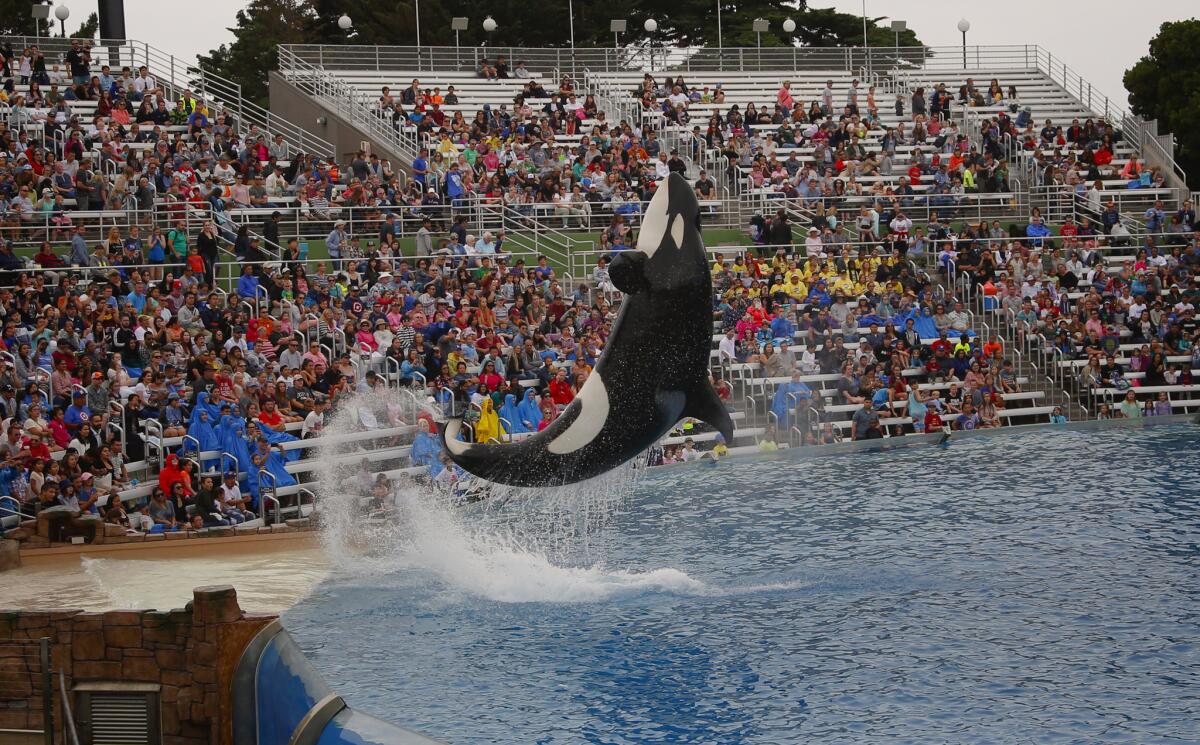SeaWorld will pay $65 million to settle investors’ ‘Blackfish’ lawsuit

Investors alleged SeaWorld deceived them about the anti-captivity documentary’s effects on park attendance. The settlement still needs court approval.
San Diego — SeaWorld Entertainment announced Tuesday that it has agreed to pay $65 million to settle a longstanding lawsuit alleging that the company deceived investors by claiming the anti-captivity documentary “Blackfish” had no ill effect on park attendance.
The settlement comes just a week before a jury trial was to begin in the case, which originated in 2014 and was later certified as a class-action lawsuit. In a Tuesday filing with the Securities and Exchange Commission, SeaWorld said the settlement is not an admission of wrongdoing.
The settlement is still subject to approval by a federal judge. SeaWorld said it would fund the settlement with $45.5 million in insurance proceeds and $19.5 million in company cash.
Plaintiffs in the suit claimed that when SeaWorld executives acknowledged in August 2014 that falling park attendance was due in part to negative publicity surrounding issues raised by “Blackfish” — a 2013 film that looked at SeaWorld’s treatment of its killer whales — the value of shareholders’ SeaWorld stock dropped nearly 33% in a single day.
SeaWorld countered that there was no evidence it failed to disclose internal information showing “Blackfish” was hurting attendance. It called the lawsuit meritless.
The Orlando, Fla.-based company was facing potentially damning evidence, some of which had been released in the form of depositions of former SeaWorld employees.
In one deposition, a former vice president of communications, Fred Jacobs, acknowledged that on multiple occasions he made false statements to reporters when he told them SeaWorld had not experienced any harm to its reputation, business or attendance following the release of “Blackfish.” When asked in the deposition why he said something he knew to be false, he responded, “I was instructed to answer the question by [then-Chief Executive] Jim Atchison.”
SeaWorld had tried last year to have the case thrown out, but U.S. District Judge Michael Anello in San Diego ruled in November the trial should move forward.
The $65-million payout is much more than the $5-million sum that SeaWorld and Atchison agreed to pay in 2018 to settle charges by the SEC that they fraudently misled investors about the effect of “Blackfish” on the company. Jacobs at the time also agreed to settle a fraud charge and pay approximately $100,000. The SEC said at the time that Jacobs was not assessed a penalty because of his “substantial assistance” in the SEC’s investigation.
Weisberg writes for the San Diego Union-Tribune.
More to Read
Inside the business of entertainment
The Wide Shot brings you news, analysis and insights on everything from streaming wars to production — and what it all means for the future.
You may occasionally receive promotional content from the Los Angeles Times.











